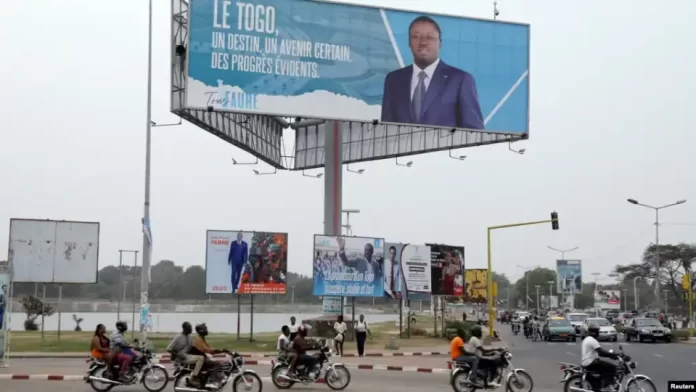By Ngozi Otu
Togo began voting in legislative elections on Monday, April 29, after a divisive constitutional reform that opponents say allows President Faure Gnassingbe to extend his family’s decades-long grip on power.
The ballot comes after lawmakers this month approved the reform creating a new Prime Minister-style post that opponents believe is tailored for Gnassingbe to avoid presidential term limits and stay in office.
Gnassingbe, who has been in power for 20 years, succeeded his father, Gnassingbe Eyadema, who ruled for almost four decades himself following a coup in the small coastal West African state wedged between Benin and Ghana.
Monday’s vote will elect 113 lawmakers and 179 regional deputies from the country’s five districts, who, along with municipal councilors, will elect a newly created senate.
Opposition parties have mobilized supporters to vote against what they say is an “institutional coup.”
Gnassingbe, 57, has already won four elections, all contested by the opposition as flawed. He would have only been able to run one more time as president in 2025 under the previous constitution.
With a population of nearly 9 million, Togo’s economy is mainly agrarian, though Lome has one of the busiest deep seaports in West Africa, helping the country weather the fallout of the Ukraine war and the pandemic.



